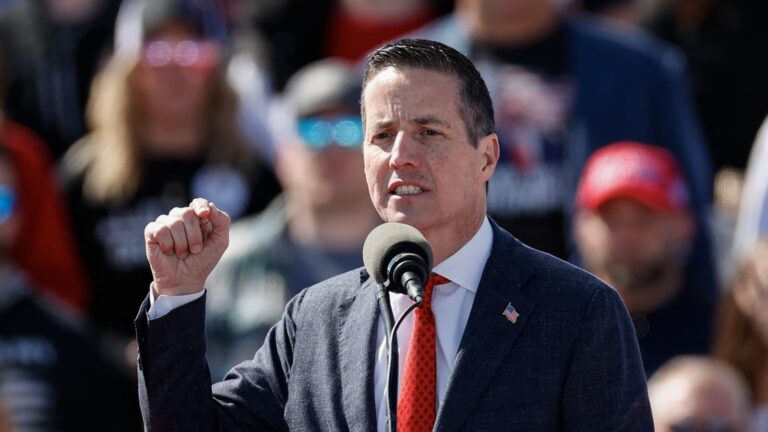Could a New Senate Majority Leader Bring Clarity to U.S. Crypto Regulations?
In the fast-moving world of cryptocurrency, a major shift in U.S. politics has crypto enthusiasts feeling hopeful. On November 13, Senator John Thune from South Dakota was elected as the new Senate Majority Leader, defeating Senator Rick Scott of Florida, who had the support of Elon Musk. Why is this important for crypto? Because Thune has long shown interest in making U.S. regulations more crypto-friendly, and the industry is watching closely to see what comes next.
Why Does This Matter for Crypto?
Thune’s victory signals a potential shift toward clearer and more supportive regulations for cryptocurrencies like Bitcoin and Ether. For years, the crypto industry has been struggling with regulatory uncertainty, and many believe that with Thune at the helm, things could change for the better. This could lead to policies that not only support the industry but also help it grow.
One key aspect of Thune’s stance on crypto is his past support for the Commodity Futures Trading Commission (CFTC), which oversees commodities like Bitcoin. He has pushed for expanding the CFTC’s role in regulating crypto, a move that could offer a more predictable and less aggressive alternative to the U.S. Securities and Exchange Commission (SEC), which has taken a stricter approach.
Thune’s History with Crypto
Thune has a record of backing crypto-friendly initiatives. In 2022, he co-sponsored a major crypto bill called the Digital Commodities Consumer Protection Act (DCCPA), which sought to establish the CFTC as the primary authority over the regulation of major cryptocurrencies. The bill even referred to Bitcoin and Ether as “digital commodities,” a term that places them under the CFTC’s jurisdiction instead of the SEC’s. Many in the crypto community saw this as a “pivotal step” towards clearer regulations.
In addition, Thune has criticized certain SEC policies, such as the Staff Accounting Bulletin No. 121 (SAB 11), which required crypto custodians to treat customer assets as liabilities on their balance sheets. This rule was seen by many as an extra burden on the industry. Thune voted to overturn this measure, further showing his pro-crypto stance.
A Potential Game Changer for the Crypto Industry
With Thune’s rise to Senate Majority Leader, the crypto community is optimistic that his leadership could help streamline and improve regulatory frameworks for cryptocurrencies. Thune is seen as someone who is “strongly supportive” of crypto, and his past actions indicate that he will continue advocating for policies that benefit the industry.
While former President Donald Trump did not officially endorse Thune in the race for Majority Leader, Thune’s alignment with Trump’s policies could also pave the way for future regulatory decisions that favor crypto growth.
Key Takeaways
- John Thune’s Leadership: Thune is now the Senate Majority Leader and has a pro-crypto stance, which could lead to more favorable regulations.
- CFTC vs. SEC: Thune has advocated for giving the CFTC more control over crypto regulations, as opposed to the SEC’s stricter approach.
- Previous Support: Thune co-sponsored the Digital Commodities Consumer Protection Act, a bill that could pave the way for clearer crypto regulations.
- Industry Hope: With Thune in charge, the crypto community is hoping for more clarity and less regulatory hostility, which could be a huge win for the industry.
Why This Is Important for You
If you’re interested in crypto, understanding how U.S. regulations evolve is crucial because the U.S. is a major player in the global market. Clearer regulations could make it easier for businesses to operate, for new technologies to be developed, and for you to navigate the world of crypto with more confidence. With leaders like Thune supporting crypto, the industry might finally get the clarity it needs to thrive. This is a turning point, and if you’re in the crypto space or planning to get in, it’s important to stay informed.
The crypto world is rapidly changing, and Thune’s leadership might just be the key to unlocking a new era of growth and innovation in the U.S. regulatory landscape.



